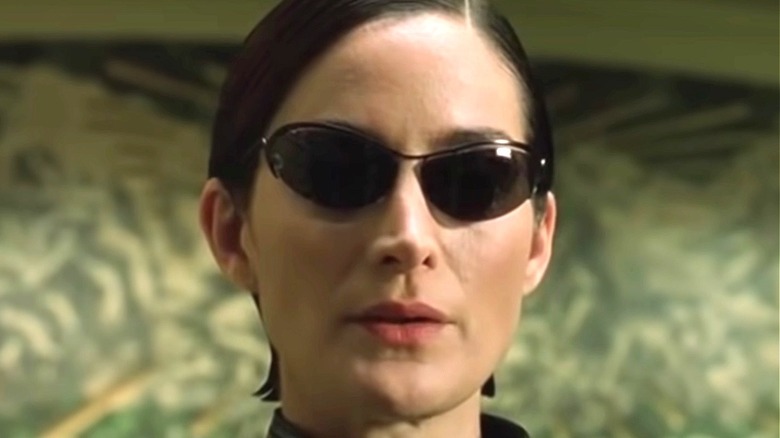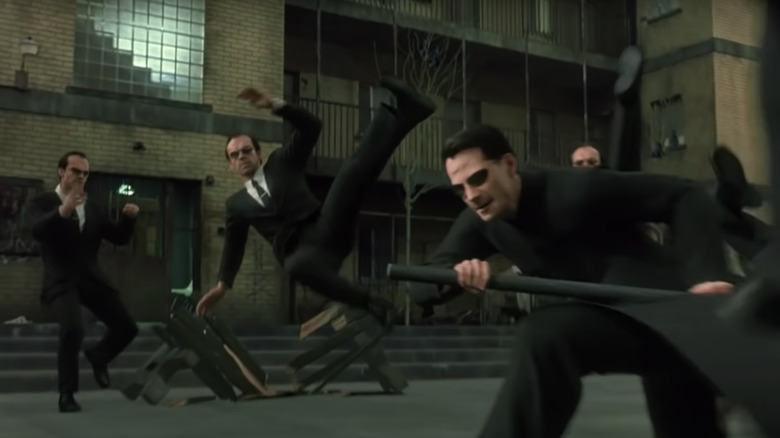Why The Matrix Might Be To Blame For The Bad CGI In The Matrix Reloaded
"The Matrix" is perhaps one of the most groundbreaking science-fiction films ever conceived. Released in 1999, "The Matrix" was a surprise box office hit, grossing over $460 million worldwide (via Box Office Mojo). It was so successful, in fact, that it led to three sequels, though none of them achieved the cultural success that the first film did. However, "The Matrix Reloaded," the second film, was also a box office success, grossing $739 million worldwide (via Box Office Mojo).
Many fans will probably remember "The Matrix Reloaded" for its less-than-stellar CGI. This is especially true of the big Neo (Keanu Reeves) and Agent Smith (Hugo Weaving) clone fight that comes somewhere around the midpoint of the film. While one could make the case that this is just the result of scenes that aged poorly over time, some of the effects work in "The Matrix Reloaded" feels inferior even to the original film, which had less than half the budget of "The Matrix Reloaded." However, there's a theory floating around that the Matrix itself may be to blame for the bad CGI in the sequel.
A fan theory states that The Matrix Reloaded has bad CGI because of in-universe rendering issues
Over on the r/FanTheories subreddit, u/luisseg offered up an amusing and actually sort of credible in-universe explanation for why the CGI in "The Matrix Reloaded" is not the greatest, and it has to do with the rendering of the Matrix itself. As mentioned above, the CGI becomes noticeably worse during the big, climactic Smith clone army vs. Neo fight. According to the theory, this is because Neo and Smith are both anomalies who are breaking the rules inherent to the Matrix itself. Its servers become overloaded, and thus the video quality drops tremendously, leading to poor CGI.
While it would be easy to write this off as a nice little in-universe excuse to dismiss criticisms of poorly rendered CGI, there's actually some precedent for this. It wouldn't be the first time that the "Matrix" films use real life to inform their stories. This is especially true of the latest film, "The Matrix Resurrections," which features quite a few pieces of dialogue calling out Warner Bros. for wanting to revive the franchise. It's all delivered in a very tongue-in-cheek manner. Could the bad CGI of "The Matrix Reloaded" have been the Wachowskis' early form of doing this?
Again, this is simply a fan theory, and as such, it should be taken with a grain of salt, but it's definitely fun to imagine a whole team of special effects experts deliberately crafting shoddy CGI in the name of storytelling.

